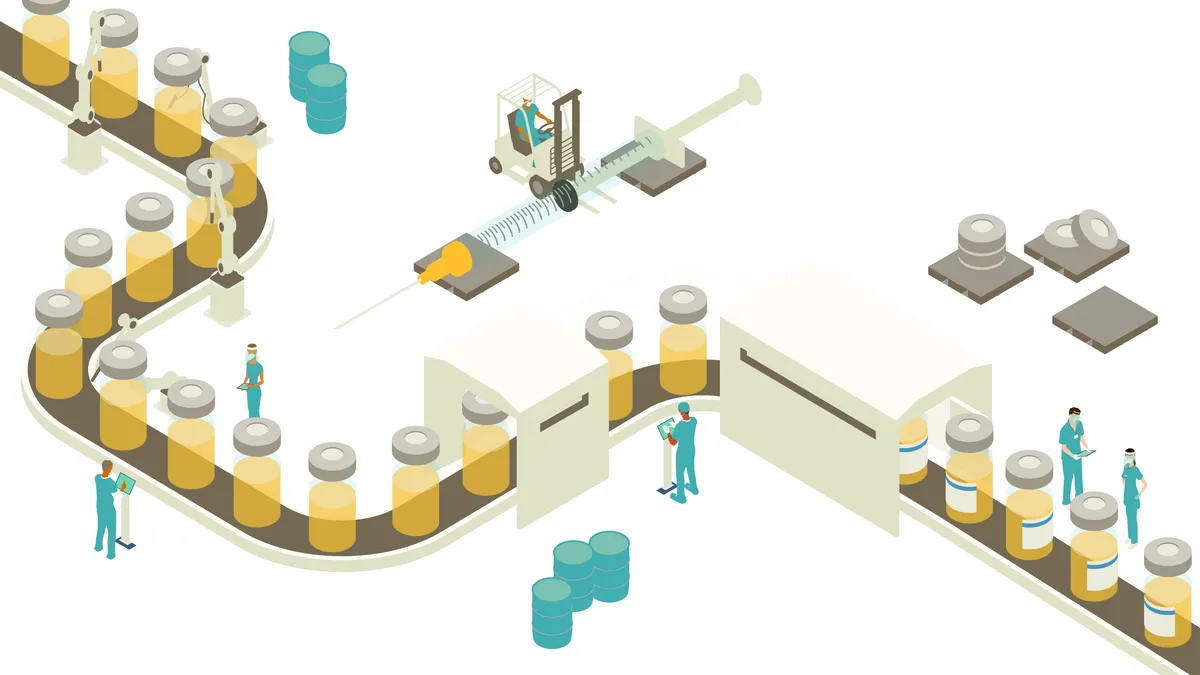The industry is staring down a looming patent cliff like it’s a massive hurricane inching toward landfall. And the patent cliff not too far in the distance is set to be one of the most harrowing in history.
Inside the eye of the storm is AbbVie’s Humira — the bestselling drug of all time. In late January, the first U.S. Humira biosimilar hit the market, and by the end of Q1, global sales for the immunology blockbuster had already tumbled by 25%. More Humira copycats are rolling in throughout the year — and that’s just the beginning.
By 2030, patents will expire for nearly 200 drugs, and almost every major pharma company will be impacted. Big-time drugs like Merck & Co.’s Keytruda, Regeneron’s Eylea, J&J’s Stelara, Eli Lilly’s Trulicity and a trio of blockbusters from Bristol Myers Squibb — Opdivo, Eliquis and Revlimid — will all lose patent exclusivity by the end of the decade.
According to analysis by Evaluate Pharma, the industry’s total value of sales at risk will spike this year to $44.4 billion, drop next year and then steadily climb again each year until it hits a peak in 2029.
And of course, all of this is happening against a backdrop of other financial headwinds including a down biotech investment market, a decrease in available capital, banking troubles and increased uncertainty brought on by the Inflation Reduction Act, which includes provisions around drug pricing negotiations, payment caps and more.
With the industry facing this onslaught of challenges, pharma companies are battening the hatches through increased partnerships and at times, bigger deals. But as the Economist recently noted, surging demand for attractive drug candidates and companies is triggering soaring premiums in M&A. Merck, for example, agreed to pay $200 a share for Prometheus in April — about 75% over the company’s share price just before the deal was announced. Pfizer’s $43 billion acquisition of Seagen was also a 33% premium over its share price.













